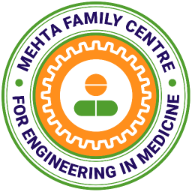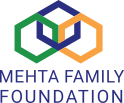In conversation with
Kushagra Pandey
on his recent study:
Pandey K, Zafar H. Inference of cell state transitions and cell fate plasticity from single-cell with MARGARET. Nucleic Acids Research, 25 may, 2022
MFCEM: Congratulations to you Kushagra, and to your advisor Prof. Hamim Zafar on your recent publication. Let me start by acknowledging that single-cell-omic studies is happening in a huge way resulting in an overload of data, having said so, what “gap” did you identify that motivated you to come up with MARGARET.
Kushagra Pandey: The main computational problem that we try to tackle in this work is that of Trajectory Inference or TI where the goal is to study how certain biological processes evolve over time. For instance, consider a fundamental biological process like cell differentiation where immature cells gradually undergo cell division to form more mature cell types which are important for performing different functions in our body. Using TI to model the landscape of cell differentiation can help us in understanding why certain types of cells give rise to some other types of cells. This type of modelling becomes even more important when dealing with scenarios which hinder the normal workflow of these biological processes (like cancer). When we first started with the problem, we found that even though TI as a computational problem is well studied, existing computational methods make certain assumptions on the type of trajectory underlying these biological processes. Now, these assumptions can hold for some biological systems but not for others. This was the primary motivation behind MARGARET: To come up with a TI method that does not make any assumptions about the underlying trajectory and can generalize to different biological processes.
MMFCEM: What was the most challenging part of developing MARGARET?
Kushagra Pandey: In the development of any computational method there are usually two stages involved in development: method design and experimental justification. Interestingly, I feel the method design was not very challenging since we had some clarity on the abstract design framework from the very beginning. However, since MARGARET is a computational tool to be used by biologists, we wanted to see if we can indeed recover correct biological insights from different biological systems which the end-users might ultimately care about. Therefore, we undertook validation case studies in this work involving well-studied biological processes like hematopoiesis (the process of blood formation) and we found that the insights we obtained by applying our method to these biological processes well conformed with the experimental findings in the existing literature. I feel this part was the most challenging during the development phase since we had to perform an extensive literature survey in each of the case studies to justify our findings. However, I have to admit it was also the most fun part since you are effectively finding out novel biological insights directly from single-cell data.
MFCEM: Could you share with us one feature of the platform that you have developed that is a game changer? Will we see the diversifying further in the near future?
Kushagra Pandey: Without going into too much method details, MARGARET kind of provides a playground for interactively visualizing single-cell datasets at the cell-level and also at the cluster-level. So any user can get started with exploring the dataset by projecting gene or transcription factor expressions on the visualized graph to get important biological insights from the dataset which I think is important. We are also planning to work on extending MARGARET to gain insights from different multi-omic views (like scRNA-seq, CITE-seq etc.) of the same biological process collectively. We believe this would improve our method when dealing with complex biological processes like cell differentiation in cancer tissues etc.

